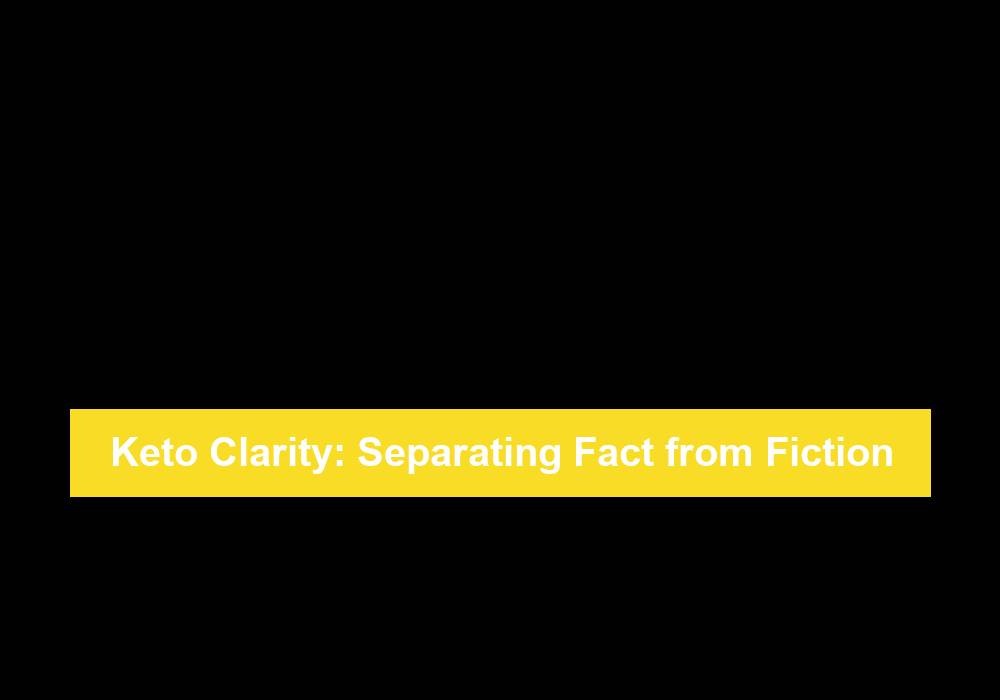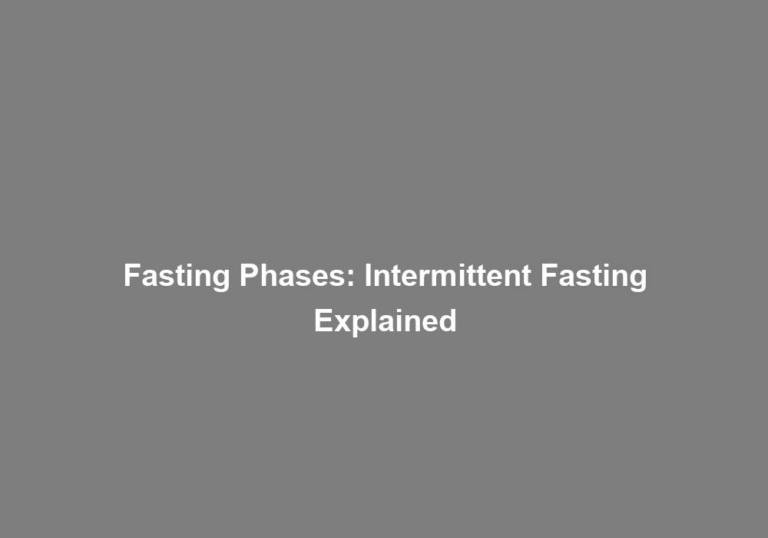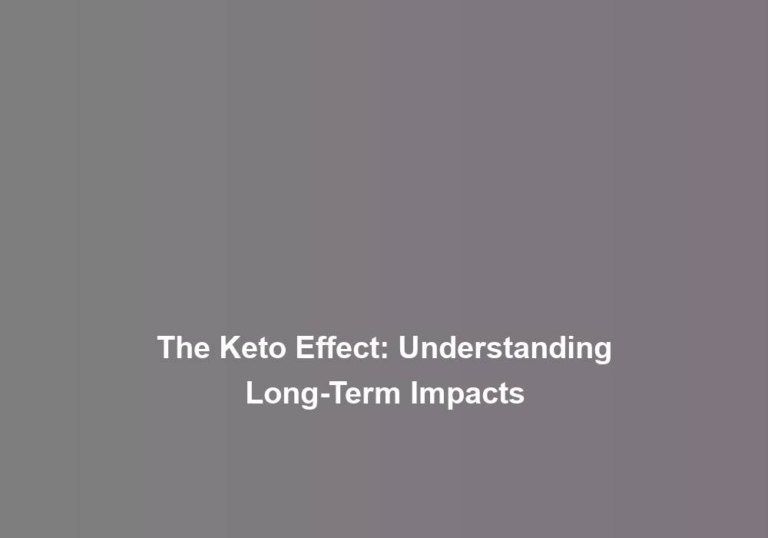Keto Clarity: Separating Fact from Fiction
If youG??ve heard chatter about the ketogenic diet, youG??re not alone. In fact, a recent survey found that 62% of Americans have heard of the keto diet, but thereG??s also a lot of misinformation out there. You might be surprised to learn how many myths and misconceptions surround this popular eating plan. But before you dismiss it as just another fad, itG??s worth taking a closer look at the science behind keto and separating fact from fiction.
Origins of the Ketogenic Diet
The origins of the ketogenic diet can be traced back to the early 1920s when it was developed as a therapeutic approach for epilepsy treatment. This dietary intervention gained momentum due to its ability to mimic the metabolic effects of fasting, which had been observed to reduce seizure activity. From an evolutionary perspective, the ketogenic diet replicates the low-carbohydrate, high-fat eating patterns of our hunter-gatherer ancestors. It is believed that our bodies have adapted to function optimally under conditions of low carbohydrate availability, making the ketogenic diet a potentially natural dietary approach.
The cultural relevance of the ketogenic diet has evolved over time. While it was initially developed for medical purposes, it has gained popularity as a weight loss and overall health strategy. In todayG??s society, where highly processed, carbohydrate-laden foods are readily available, the ketogenic diet offers an alternative approach that resonates with individuals seeking to improve their health and well-being. Its appeal also lies in the variety of delicious, satisfying foods that can be consumed, challenging the misconception that healthy eating is restrictive and unsatisfying.
ItG??s important to note that while the ketogenic diet has deep historical roots and cultural significance, its application should be approached with caution and under the guidance of healthcare professionals, especially for individuals with underlying health conditions. Always consider individual needs when embarking on dietary changes and seek advice from qualified professionals.
Common Misconceptions About Keto
As you consider the ketogenic diet, itG??s essential to address some common misconceptions that may influence your understanding and decision-making.
-
Keto Diet and Weight Loss: One common misconception about the keto diet is that itG??s primarily a quick fix for weight loss. While many people do experience rapid weight loss initially, the keto diet is more about shifting your bodyG??s energy source from glucose to fat. ItG??s a metabolic state that can lead to weight loss over time, but itG??s not a one-size-fits-all solution.
-
Keto Flu: Another misconception is the belief that everyone who starts the keto diet will experience the keto flu. While some individuals may experience symptoms such as fatigue, headaches, and irritability when transitioning to a ketogenic state, not everyone will have the same reaction. Moreover, these symptoms are often temporary and can be mitigated with proper hydration and electrolyte management.
-
Electrolyte Imbalance: ThereG??s a misconception that the keto diet inherently causes electrolyte imbalance. While it is true that reducing carbohydrate intake can impact electrolyte levels, being mindful of your salt, magnesium, and potassium intake can help prevent imbalances. Understanding the importance of electrolytes and how to maintain a proper balance is crucial for those following the keto diet.
Benefits and Risks of Keto
Navigating the ketogenic diet involves understanding its potential benefits and risks, which can impact your health and well-being. The keto diet has gained popularity for its potential to aid in weight loss. By reducing carb intake and increasing fat consumption, your body enters a state of ketosis, where it burns fat for fuel. This can lead to rapid weight loss, especially in the initial stages of the diet. Additionally, the keto diet may help regulate blood sugar levels and improve insulin sensitivity, which can be beneficial for individuals with type 2 diabetes.
However, itG??s essential to consider the risks associated with the keto diet. Some individuals may experience adverse effects, often referred to as the G??keto flu,G?? which may include fatigue, dizziness, and nausea as the body adapts to using ketones for energy. Moreover, the long-term health implications of following a ketogenic diet are still being studied. Some experts express concerns about the potential impact on heart health due to the high consumption of saturated fats. Additionally, the restrictive nature of the diet may lead to nutrient deficiencies if not carefully managed.
ItG??s crucial to weigh the potential benefits of weight loss and improved metabolic markers against the risks and uncertainties surrounding long-term health impacts. Before embarking on a keto diet, itG??s advisable to consult with a healthcare professional to determine if it is a suitable choice for you, considering your individual health status and wellness goals.
Debunking Keto Myths
Understanding the truth about common misconceptions surrounding the keto diet can help you make informed decisions about its suitability for your health and wellness goals. There are several myths about the keto diet that need to be addressed to provide clarity and dispel any confusion.
-
Myth: Keto Diet is Not Sustainable The keto diet is often misunderstood as being unsustainable over the long term. However, research shows that many individuals are able to sustain a ketogenic lifestyle successfully. With proper planning, varied food choices, and support, the keto diet can be a sustainable option for weight loss and overall health.
-
Myth: Keto Diet Leads to Nutrient Deficiencies Some people believe that the keto diet can lead to nutrient deficiencies due to its restrictive nature. While itG??s true that certain nutrients may require careful attention, a well-planned ketogenic diet can provide all the essential vitamins and minerals. With a focus on nutrient-dense foods and, if necessary, supplementation, nutrient deficiencies can be minimized.
-
Myth: Keto Diet is Only for Rapid Weight Loss There is a common misconception that the keto diet is solely for rapid weight loss. While many people do experience significant initial weight loss on the keto diet, it can also be a sustainable approach for long-term weight management. Additionally, the keto diet has been shown to offer other health benefits beyond weight loss, such as improved blood sugar control and increased energy levels.
Understanding and addressing these myths can help you better navigate the keto diet, making it a more informed and suitable choice for your weight loss and overall health goals.
Science Behind Ketosis
The misconceptions surrounding the keto diet often overshadow the scientific principles that underpin its effectiveness, particularly the process known as ketosis. Ketosis is a metabolic process in which your body switches from using carbohydrates as its primary source of energy to using fats. This shift in fuel source can have significant implications for weight loss and energy levels.
When you restrict your carb intake, your body begins to break down stored fat into molecules called ketones, which are then used as fuel. This metabolic state, known as ketosis, can lead to weight loss because it encourages the body to burn fat for energy instead of relying on glucose from carbohydrates. By promoting fat burning, the keto diet can be an effective approach for those seeking to manage their weight.
Furthermore, the production of ketones during ketosis can also have an impact on energy levels. Many individuals on a ketogenic diet report experiencing increased mental clarity and sustained energy throughout the day. This is attributed to the steady supply of energy from ketones, which can provide a more stable source of fuel compared to the fluctuations in blood sugar levels that often occur with carbohydrate-heavy diets.
Understanding the science behind ketosis is crucial for grasping the potential benefits of the keto diet. By embracing this metabolic process, individuals may find a pathway to achieving their weight loss and energy level goals in a sustainable and evidence-based manner.
Conclusion
In conclusion, the ketogenic diet has its benefits and risks, but itG??s important to separate fact from fiction when considering this lifestyle. For example, Sarah, a 35-year-old woman, saw significant improvements in her energy levels and weight management after starting keto. However, itG??s crucial to consult with a healthcare professional before making any drastic dietary changes. Keep an open mind and stay informed to make the best decision for your health.







